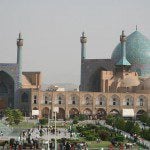If there is one thing that defines the state of American society today, it is anger. Everyone is mad. We are angry about the past, about our imagined future, and about the current events of today. We feel under threat, unsafe, and unheard. All of us.
In our anger, we are losing touch with reality. We are losing our ability to rightly condemn and to forgive. To listen to and care for one another. All of us. We are sinking into the whirlpool of defensiveness and dangerous justifications.

The real tragedy we are experiencing in this country is this: we rush through other people’s pain and linger on our own. So, we say (or think things) like, “Yeah I get how they are hurting, but…”. And then when it comes to our own pain, we rant and rave, over and over about the causes, the unfairness, and the inhumanity of it all. Basically, they should get over it. I, on the other hand, am justified in my anger. My pain is more valid than theirs.
So we sit in our own pain and demand the pain of others pass by. The pain of others passes by us like a high-speed train. But ours follows us around, informing our worldview.
The Value of Anger
Anger, by the way, is a valuable thing. Or it can be. The Bible does not say, ‘don’t be angry”. It says “be slow to anger” and “in your anger do not sin”. Anger is a problem in America not because it is there but because we as a society, as individuals, are quick to anger and using it as a justification for sin.
Anger is not something we should avoid. It is not something we should ignore. Our anger is there for good reason (to varying degrees). We feel threatened. Or guilty.
Our tendency is to try to use our anger as a weapon against them. The others. But our anger is about us. My anger is mine. It comes from my sense of value. It comes from me. The circumstances in our society might trigger it, but if it is there, it is meant to expose my heart.
So, acknowledging anger is the first step. But, at this point, most of us are doing that. We are holding onto our anger, idolizing it even. The second step is to examine and transform our anger into something more useful.
Examined Anger
Why are we angry? What value are we defending? What is the best way to achieve that value?
Unexamined anger will transform us; examined anger has the ability to be transformed into something that more deeply aligns with our true character.
We are plagued by unexamined anger. It is a whirlpool, a quicksand, a snare. We sink, individually and collectively, deeper into despair as we curse and blame the others.

Anger is a difficult emotion, like trying to diffuse a bomb. It has a power unlike anything we experience. It can sometimes mask the potential of anger. And instead of helping, it perpetuates the very cycles and patterns and systems that caused it in the first place. We bait our enemies. We reinforce the patterns we are trying to change. We ignore the faults and the realities of our systems. Nobody wins in a boxing match of blame. Unexamined anger is concerned only with justifying and reinforcing itself. Examined anger is concerned with the heart issue (the truth) of where the anger is coming from and addressing that core value.
Examined anger has the ability to transform into justice. Peace. Intimacy. It can be a catalyst for growth. We cannot create new systems while gripping tightly to the old ones. And anger (along with its cousin, fear) are staples of both the historic and current system of American society.
There is nothing more important for the immediate future of American culture than this: how will we respond to our anger? Will we find pockets of like-minded fury to reinforce our anger? Will we draw insurmountable lines between Anger A and Anger B? Or will we acknowledge the truth of our anger, the realities that surround it, and use it to catalyze a transformation into unity and justice for all?












